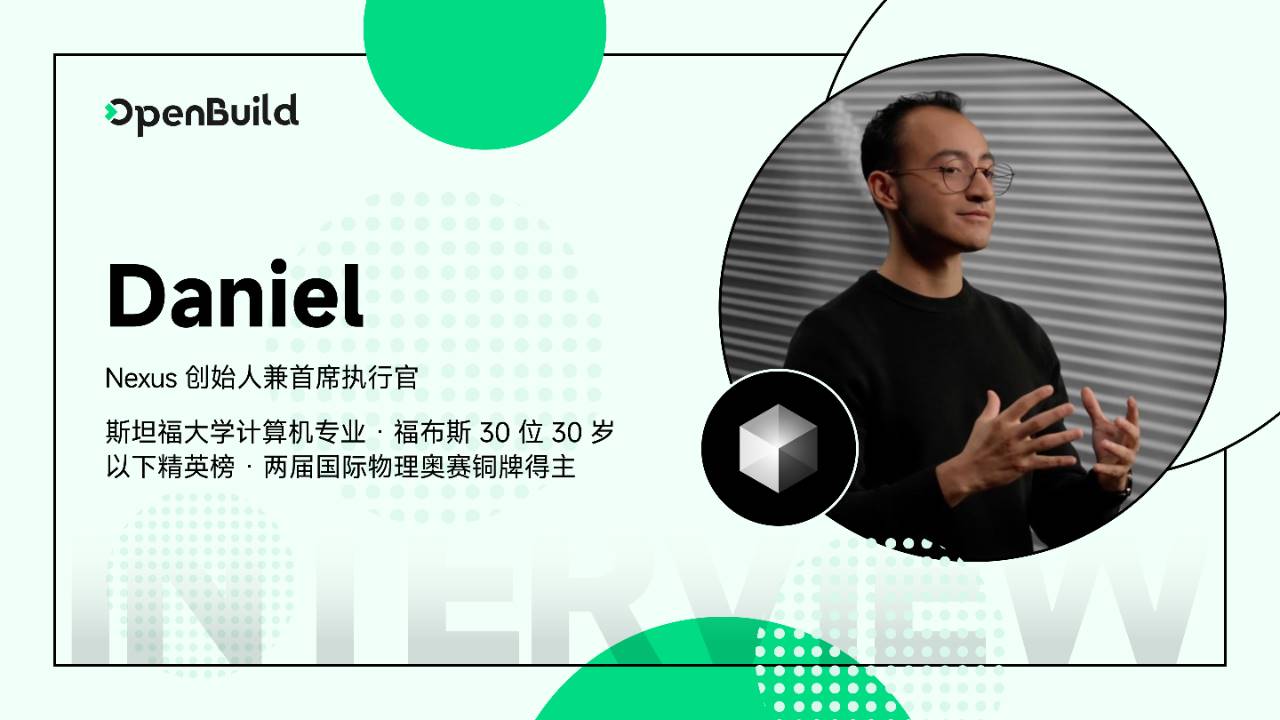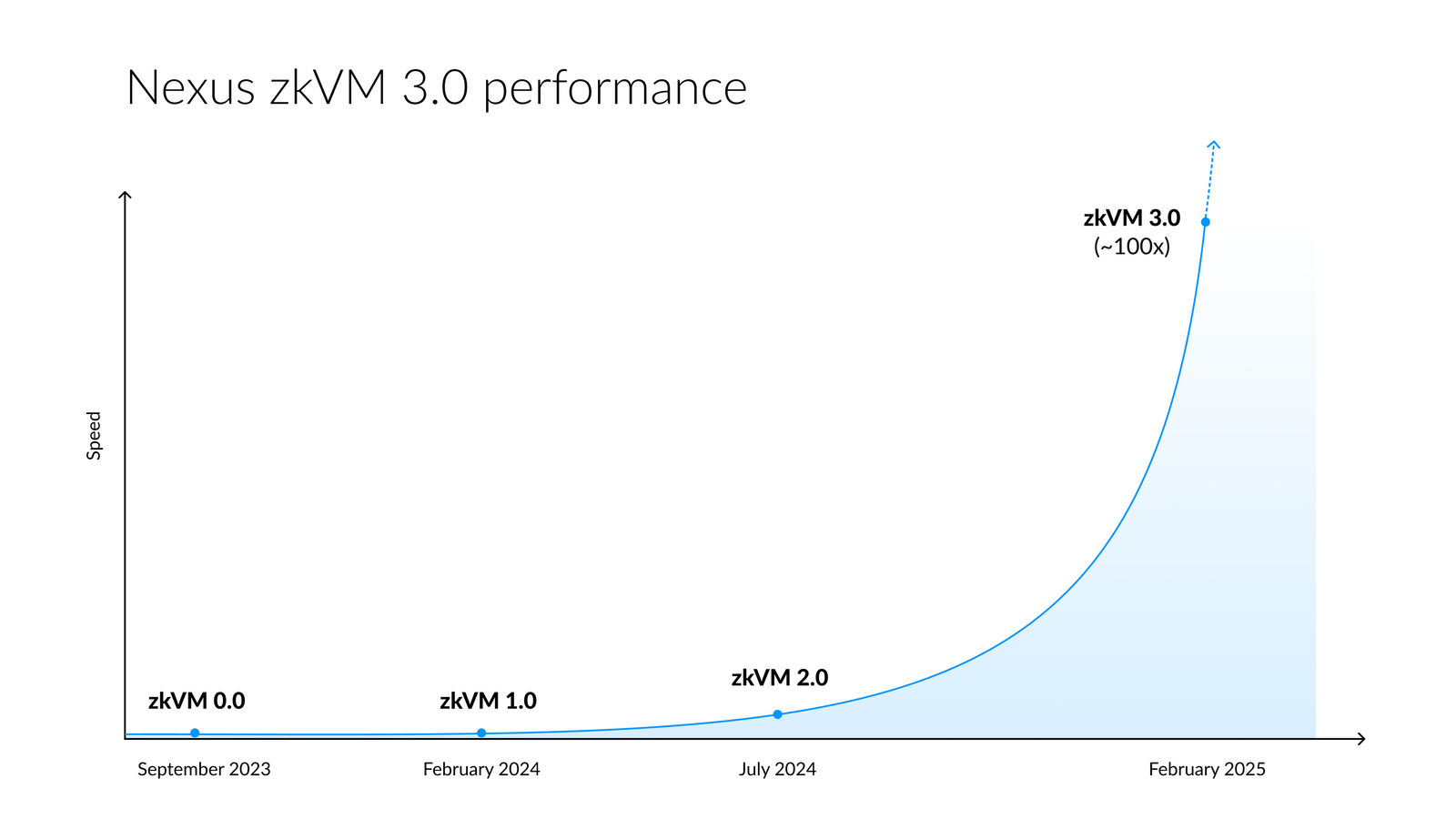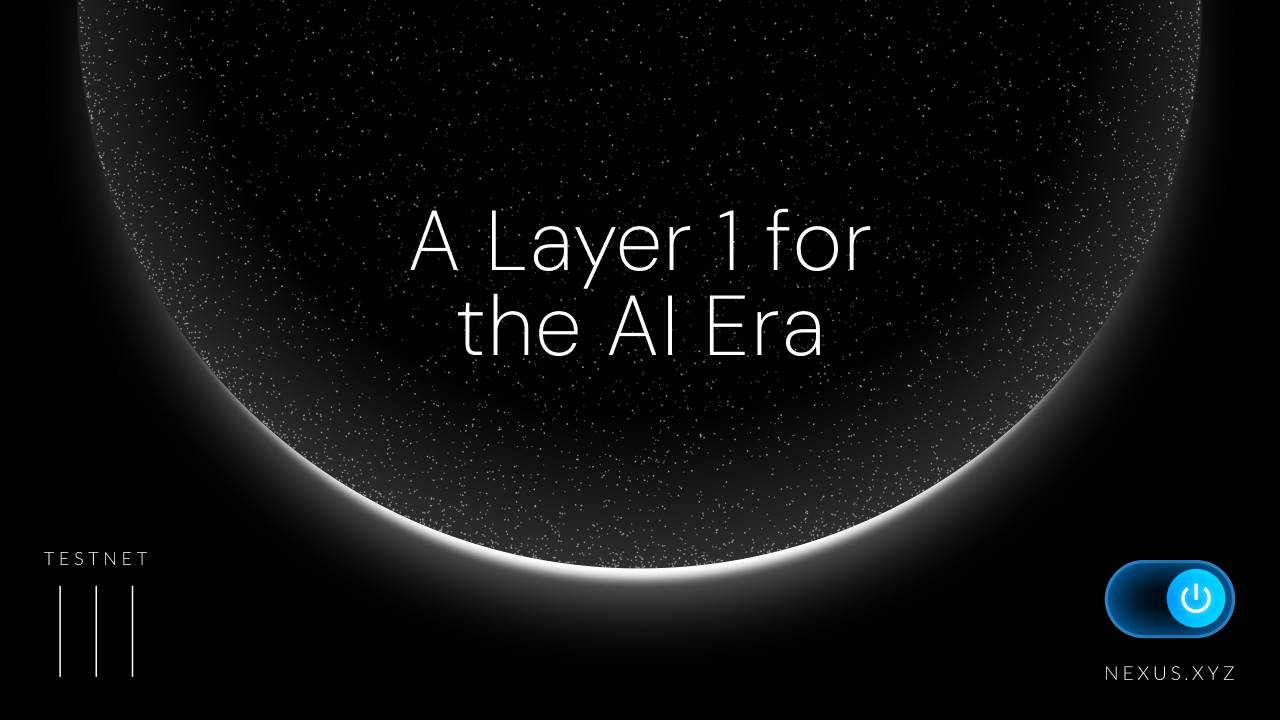In-depth discussion on the founding intention of Nexus, the future path of verifiable computing, and the deep coupling between zkVM, distributed computing, and AI trusted execution.
Interviewer: Daniel Marin, Founder and CEO of Nexus
Interview and writing: Alex, OpenBuild content team
As AI computing power continues to expand and Web3 infrastructure rapidly evolves, verifying the authenticity of large-scale computing has become a core challenge faced by global digital systems. Nexus is driving a cutting-edge exploration—building a verifiable computing network that everyone can participate in and operate globally, integrating zero-knowledge virtual machines (zkVM) with a distributed prover network to create a boundary-less "world supercomputer."

In this exclusive interview, OpenBuild talks to Nexus founder Daniel Marin, delving into the founding intention of Nexus, the future path of verifiable computing, and the deep coupling between zkVM, distributed computing, and AI trusted execution. He also shares how Nexus achieves high-performance scaling of general computing without sacrificing privacy through a dual drive of technology and ecology.
Guest Profile
Daniel Marin, Founder and CEO of Nexus, graduated from Stanford University with a degree in Computer Science. He founded Nexus in 2022 with the ambition to build a digital world where "every action is verifiable, every model is auditable, and every interaction is verifiable." He won a bronze medal in the International Physics Olympiad in 2018 and 2019 and was selected for Forbes' "30 Under 30" list in 2025. Nexus has completed $25 million in financing, with investors including Pantera Capital, Lightspeed, and Dragonfly Capital.
Founding Intention: A Verifiable Computing Platform for Everyone

OpenBuild: What prompted you to found Nexus? What problem did you initially want to solve?
Daniel Marin: At that time, I was involved in a research project at the Stanford Cryptography Lab and witnessed the rapid evolution of zero-knowledge proofs, especially inspired by Microsoft Research's Nova paper[1]. It made me realize that we could efficiently combine multiple zk proofs to build a new paradigm of "general verifiable computing"[2].
On the other hand, I observed three major bottlenecks facing the current blockchain ecosystem:
Users cannot easily contribute computing power.
Developers need a professional background to participate.
The scalability and performance of the chain itself are limited.
I envisioned whether anyone could connect to the network, contribute computing power, run AI-level tasks, and prove the authenticity of these tasks using any device (even an old phone)?
This is the starting point of Nexus—a chain where "the more nodes, the faster the network." Unlike traditional chains, the Nexus network becomes faster and more powerful with more participants. Every device that joins is not a burden but an accelerator. My original intention in founding Nexus was simple—to make the internet safer and more trustworthy.
For years, I have been thinking about whether we could build a "general verifiable computer" for this world, an infrastructure where anyone can verify computation results. With breakthroughs in zero-knowledge proof technology, this goal has finally become a reality. Especially during my research at the Stanford Cryptography Lab, I was inspired by Microsoft Research's Nova paper[3]. It made me realize that we could efficiently combine multiple zk proofs to build a new paradigm of "general verifiable computing."
In addition, I also observed multiple limitations of current blockchain systems:
• Ordinary users cannot contribute resources;
• High development thresholds require mastering complex tools;
• Scalability is severely limited.
Thus, I had an idea: to allow everyone to connect to the network with their devices (even a phone), contribute computing power, and ultimately collaboratively build a trusted supercomputer that supports large-scale computing.
This is the starting point of Nexus. Unlike traditional blockchains where "the more nodes, the slower it gets," Nexus's design logic is the more nodes, the stronger the network.
zkVM and the Future of Verifiable Computing
OpenBuild: What was your initial vision of "verifiable computing"? How do you see its future now?
Daniel Marin: We are at a turning point in computing paradigms. I believe verifiable computing will reshape our understanding of computing scalability, performance, and even application forms.

Here, scalability[4] is divided into two dimensions:
• Vertical: Accelerating the speed of zkVM through hardware like GPUs;
• Horizontal: Connecting more devices to form a global computing power network, bringing exponential additive effects.
And these are not just theoretical. We expect that within the next year, the operating speed of zkVM will reach 1GHz on an M2 MacBook Pro—meaning a laptop can verify one block per second. This is like "Moore's Law in the zk field" unfolding.
At the application level, we are particularly optimistic about the verification needs of AI, such as auditability of model behavior and traceability of AI-generated content, which is also the original intention behind establishing the Nexus Verifiable AI Lab[5].
Fundamental Differences from Traditional Blockchains
OpenBuild: What is the biggest difference between Nexus and other chains? How does it address the challenges of AI infrastructure?
Daniel Marin: Everyone talks about scalability, but they overlook the most critical point: insufficient underlying computing power.
As AI applications become more widespread and models more complex, the required computing power grows exponentially, leading to extremely high-frequency transaction requests. The question arises: How do we obtain enough computing power to support billions of transactions per second? And users must trust these transactions?
This is precisely the solution proposed by Nexus:
• It is a world supercomputer,
• Every time a laptop or phone connects, the network performance improves,
• Any user can easily contribute idle computing power without needing a technical background.
We have built a zkVM-driven Layer 1 blockchain that not only verifies transactions but also verifies any computation. It aggregates global idle computing power, allowing any user to join with a single click.
Ultimately, Nexus is not a traditional "chain," but an infrastructure network optimized for general verifiable computing.
The Concept of Building a "Verifiable Internet"
OpenBuild: You have mentioned that Nexus is building a "verifiable internet." What does this mean? How is it different from the current internet?
Daniel Marin: The "verifiable internet" we envision is a new paradigm:
• Every action can be proven;
• Every model can be audited;
• Every piece of data can be verified.
From AI to healthcare, from identity systems to on-chain finance, every component of the future digital world will be built on "verifiability."
This is not just an upgrade of trust mechanisms; it will also bring about a transformation in business paradigms—where in this internet, trust does not require "belief," only "verification." Supported by verifiable computing, the digital society will become more transparent, efficient, and secure.
Roadmap and Product Planning
OpenBuild: From both technical and ecological perspectives, what are Nexus's key directions for the next 6–12 months?
Daniel Marin: We have just launched the global Testnet III[6] test network, which will continue to run until the mainnet goes live in the third quarter of this year. 👉 Welcome to visit: app.nexus.xyz to participate in testing and receive incentives.
At the same time, we are focusing on:
• Development of a new version of zkVM;
• Construction of the Nexus Verifiable AI Lab;
• Ecological expansion with over 50 collaborative projects.
In the future, we will continue to iterate and promote "verifiable computing" as a core component of AI and Web3.
Conclusion: Building a Trustworthy Digital Civilization
Through Daniel's sharing, we can see that Nexus is not just trying to "improve blockchain," but is redefining the trust logic of the future digital society through verifiable computing.
In this era of explosive data generation, "verifiability" is becoming a more critical next-generation infrastructure than "consensus."
免责声明:本文章仅代表作者个人观点,不代表本平台的立场和观点。本文章仅供信息分享,不构成对任何人的任何投资建议。用户与作者之间的任何争议,与本平台无关。如网页中刊载的文章或图片涉及侵权,请提供相关的权利证明和身份证明发送邮件到support@aicoin.com,本平台相关工作人员将会进行核查。




